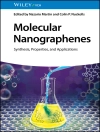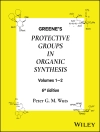SCIENCE AND ENGINEERING OF POLYPHENOLS
A groundbreaking synthesis of rich and varied polyphenol research
Polyphenols are a class of compounds, found naturally in fruits and vegetables, whose flexibility and ubiquity give them a vast range of applications in pharmaceutical, environmental, and biological research and development. They play a role in diagnosing and preventing diseases from diabetes to Parkinson’s to Alzheimer’s and have been integral in food preservation. The field of polyphenols research has the potential to touch virtually every area of organic production.
Science and Engineering of Polyphenols provides a current and comprehensive overview of this field of research and its latest developments. Long overdue as a ‘state of the field’ synthesis for an area of study that has seen rapid development in recent years, this book promises to be a milestone.
Science and Engineering of Polyphenols readers will also find:
* Treatment of both natural and synthetic polyphenols
* Detailed discussion of topics including synthesis and characterization of polyphenols, electronic and molecular structure of polyphenols, and many more
* Supplementary material including websites of interest and updates on the latest research and development
Science and Engineering of Polyphenols is ideal for scholars, industrialists, and policymakers in any of the myriad areas of academia and industry touched by polyphenol research.
表中的内容
List of contributors
Preface
Editor Bio
Part I: Overview of Polyphenols
Chapter 1: Fundamentals of Polyphenols: Nomenclature, Classification, and Properties
Chapter 2: Chemistry of Polyphenols: Synthesis, characterization and structure (electronic and Molecular) and reactivity
Chapter 3: Plant-Derived Polyphenols: Extraction, purification and Characterization
Chapter 4: Fermentation and Degradation of Polyphenols: Chemical and Microbial (Lactic Acid Bacteria) Methods
Part II: Industrial Applications of Polyphenols
Chapter 5: Polyphenols for Wastewater & Industrial Influents Treatment
Chapter 6: Polyphenols for Anticorrosion Application
Chapter 7: Polyphenols for dyes Application
Chapter 8: Polyphenols for Packaging Application
Chapter 9: Polyphenols for Textile-based Application
Chapter 10:
Chapter 11: Polyphenols-based Hydrogels and Nanocomplexes: Fundamental, Properties and Industrial Applications
Chapter 12: Polyphenol-based materials for sensors: Recent trends in Chemo- and Bio-sensing
Part III: Polyphenols for Life Science Applications
Chapter 13: Polyphenols in control of COVID-19
Chapter 14: Polyphenols for Dietary Polyphenols Application
Chapter 15: Polyphenols for health management and disease control applications
Chapter 16: Polyphenols for Antimicrobial (Disinfectant and Pest control) Application
Chapter 17: Polyphenols for Antioxidant Application: Biochemistry of Polyphenols
Chapter 18: polyphenolic compounds from marine organisms and their biofunctional properties Dietary polyphenols
Chapter 19: Polyphenols of ‘TRIBERRY ‘in dietary supplements and health care
Chapter 20: Dietary Polyphenols: Recent Trends in Biological Significance
Chapter 21: Polyphenols for Pharmaceutical (Diagnosis, Therapies, and Prevention of Diseases) Application
Chapter 22: Polyphenols for Food and Food Additives Applications
Chapter 23: Biological significance of polyphenols as functional molecules in biomaterial preparations
关于作者
Chandrabhan Verma, Ph D, is a researcher at the Department of Chemical Engineering, Khalifa University of Science and Technology, Abu Dhabi, United Arab Emirates. He has researched and published extensively on the synthesis and design of environmentally-friendly corrosion inhibitors.












